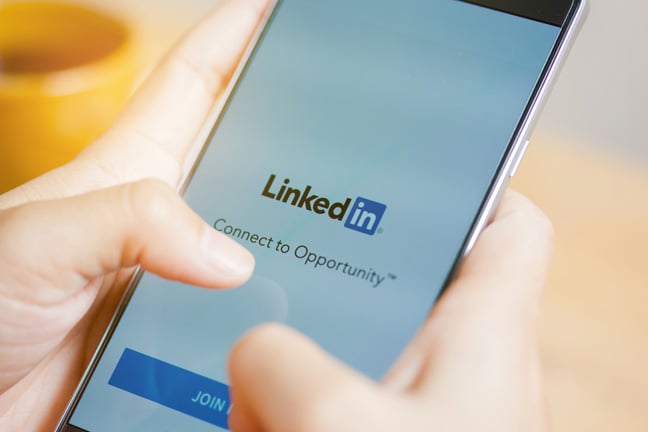US Supreme Court Gives LinkedIn Another Shot At Stymieing Web Scraping

The US Supreme Court has offered Microsoft's LinkedIn another chance to prevent hiQ from scraping its public profiles.
In 2019, the US Ninth Circuit Court of Appeals sided with a lower court that two years earlier found data science biz hiQ Labs did not violate the Computer Fraud and Abuse Act (CFAA) by scraping publicly available data from LinkedIn's website. That decision alarmed some privacy groups.
Two weeks ago, in Van Buren v. United States, the Supreme Court narrowed the Computer Fraud and Abuse Act (CFAA) by ruling that terms of service violations alone are insufficient for criminal liability under the CFAA. The CFAA criminalizes intentionally accessing a computer "without authorization" or in a way that "exceeds authorized access," though the law doesn't define those terms.
The Supreme Court held that criminal hacking charges under the CFAA shouldn't apply to people who obtain information in violation of organizational policies when that information is otherwise available to them under a granted level of access.
But the court left open whether terms-of-service policies, in conjunction with some access control function or gate mechanism, might be enough to trigger liability under the CFAA.
On Monday, the court sent LinkedIn Corporation v. hiQ Labs back to the Ninth Circuit for reconsideration in light of the Van Buren decision.
- Poetry in lockdown: hiQ to Supremes / Please leave LinkedIn scrape ruling / well enough alone
- Welcome to The Reg's poetry corner... hiQ once again / beats LinkedIn on web scrape case / more appeals await
- hiQ prevails / LinkedIn must allow scraping / Of your page info
- Supreme Court narrows Computer Fraud and Abuse Act: Misusing access not quite the same as breaking in
Orin Kerr, law professor at UC Berkeley School of Law, suggested via Twitter that the Ninth Circuit is being asked to decide whether LinkedIn's cease-and-desist letter to hiQ might qualify as the sort of gate contemplated by the CFAA or whether putting information before the public authorizes everyone to visit the public URL.
In its June 7, 2021 brief to the Supreme Court, filed just days after the Van Buren decision, LinkedIn argued that these questions need to be answered.
"LinkedIn put gates around its servers by employing technical 'code-based' measures to prevent hiQ from scraping data (which hiQ circumvented via bots) and sending a cease-and-desist letter to hiQ, thereby expressly revoking any 'authorization' hiQ had to access LinkedIn’s computers," the company's brief asserts. "Van Buren expressly left open whether these methods of denying and revoking authorization, or any other methods of doing so, qualify as 'gates-down' under Section 1030(a)(2) [of the CFAA], thus rendering hiQ’s massive scraping of data 'without authorization.'"
LinkedIn contends that companies need to know how they can disallow undesirable uses of their data, noting that websites employ a variety of strategies involving code, policies, and contracts that may or may not qualify as a "gate" under the CFAA.
In a statement emailed to The Register, Megan Iorio, counsel for the Electronic Privacy Information Center (EPIC), echoed the advocacy group's amicus brief [PDF] that argued in favor of remanding the case.
"The court’s order today to remand just delays the day when the Court will have to decide the question it left open in Van Buren: what methods the CFAA requires computer owners use to withhold or revoke authorization to access to a computer," said Iorio. "There is already a circuit split over whether a login prompt is necessary or if other technical methods and policy restrictions are sufficient."
Iorio said the Ninth Circuit decision to uphold the injunction granted to hiQ was largely due to the fact that the company was accessing "publicly available" data, in the sense that the LinkedIn user data resided on a website open to the general public.
"The court said the CFAA doesn’t provide protections for that type of computer or that type of information," she said. "But since the Ninth Circuit’s decision, news about Clearview AI and its scraping of social media sites to build biometric templates of millions of individuals has changed the discussion around web scraping and the privacy interests in 'publicly available' data."
"LinkedIn has a chance to relitigate the CFAA claims in light of the threat from Clearview AI and others who would scrape users' personal information to use for nefarious purposes, and perhaps that will make a difference to the outcome," she added.
hiQ did not immediately respond to a request for comment. ®
From Chip War To Cloud War: The Next Frontier In Global Tech Competition
The global chip war, characterized by intense competition among nations and corporations for supremacy in semiconductor ... Read more
The High Stakes Of Tech Regulation: Security Risks And Market Dynamics
The influence of tech giants in the global economy continues to grow, raising crucial questions about how to balance sec... Read more
The Tyranny Of Instagram Interiors: Why It's Time To Break Free From Algorithm-Driven Aesthetics
Instagram has become a dominant force in shaping interior design trends, offering a seemingly endless stream of inspirat... Read more
The Data Crunch In AI: Strategies For Sustainability
Exploring solutions to the imminent exhaustion of internet data for AI training.As the artificial intelligence (AI) indu... Read more
Google Abandons Four-Year Effort To Remove Cookies From Chrome Browser
After four years of dedicated effort, Google has decided to abandon its plan to remove third-party cookies from its Chro... Read more
LinkedIn Embraces AI And Gamification To Drive User Engagement And Revenue
In an effort to tackle slowing revenue growth and enhance user engagement, LinkedIn is turning to artificial intelligenc... Read more

